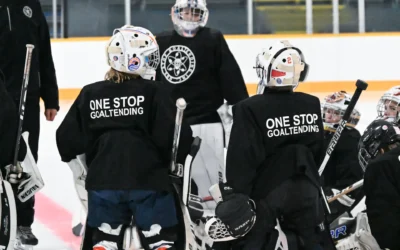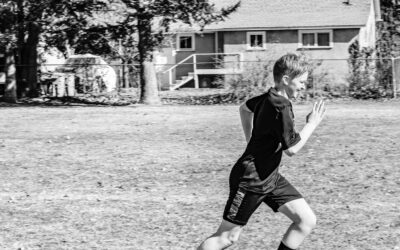The Hidden Risks of Overtraining as a Goalie: What Every Player Needs to Know
In the world of sports, the mantra “practice makes perfect” is often touted as the key to success. For goalies, whether in hockey, soccer, lacrosse, or any other sport, this advice can sometimes translate into relentless training regimes aimed at achieving excellence. However, there’s a fine line between dedication and overtraining, and crossing it can have serious, even career-threatening, consequences.
The Physiology of Overtraining
Overtraining syndrome (OTS) occurs when an athlete exceeds their body’s ability to recover from intense physical activity. Unlike regular training fatigue, OTS is a chronic condition that can lead to long-term performance declines and health issues. For goalies, the demands of their position—quick reflexes, explosive movements, and sustained focus—make them particularly susceptible to the pitfalls of overtraining.
Physical Dangers
- Injury Risk: Goalies constantly throw themselves into high-impact situations. Overtraining can lead to a decrease in coordination and an increase in muscle fatigue, making injuries more likely. Common injuries include muscle strains, ligament tears, and joint damage, particularly in the knees, hips, and shoulders.
- Decreased Performance: Ironically, overtraining can lead to a reduction in the very abilities athletes aim to enhance. Chronic fatigue can slow reaction times, diminish strength, and impair agility, all critical skills for a goalie.
- Immune System Suppression: Intense and prolonged physical exertion can weaken the immune system, making goalies more prone to infections and illnesses. This can result in more time off the field or ice, counteracting the perceived benefits of the additional training.
Mental and Emotional Impact
- Burnout: The mental strain of constant training without adequate rest can lead to burnout. Symptoms include decreased motivation, irritability, and a lack of enjoyment in the sport. For goalies, who must maintain high levels of concentration and mental resilience, burnout can be particularly detrimental.
- Stress and Anxiety: The pressure to perform and the fear of not meeting personal or external expectations can lead to heightened stress and anxiety. This mental fatigue can interfere with a goalie’s ability to make quick, confident decisions during a game.
Recognizing the Signs
Identifying overtraining early can prevent long-term damage. Key signs include:
- Persistent fatigue despite adequate rest
- Decreased performance and prolonged recovery times
- Increased frequency of injuries and illnesses
- Emotional instability and reduced motivation
Prevention and Recovery
- Balanced Training Programs: Ensure that training programs incorporate periods of rest and recovery. Cross-training and incorporating low-impact activities can also help reduce the strain on specific muscle groups.
- Listen to Your Body: Pay attention to signals of fatigue and discomfort. Taking a break or modifying training intensity can prevent overtraining before it becomes a serious issue.
- Nutrition and Hydration: Proper nutrition and staying hydrated are crucial for recovery. Diets rich in proteins, healthy fats, and carbohydrates, along with adequate fluid intake, support the body’s repair processes.
- Mental Health Support: Working with sports psychologists or engaging in mindfulness practices can help manage the mental demands of being a goalie. Techniques such as visualization, meditation, and breathing exercises can enhance focus and reduce stress.
- Professional Guidance: Consulting with coaches, trainers, and medical professionals can provide tailored advice and adjustments to training routines that align with individual needs and capabilities.
Conclusion
Overtraining as a goalie is a hidden danger that can undermine the very goals athletes strive to achieve. By recognizing the signs and taking proactive measures to balance training with adequate recovery, goalies can protect their physical health, maintain peak performance, and enjoy a long, fulfilling career. Remember, sometimes less truly is more.


